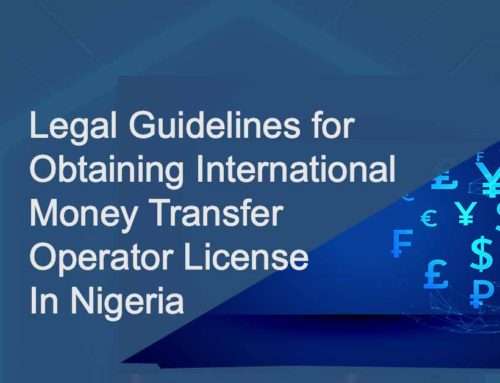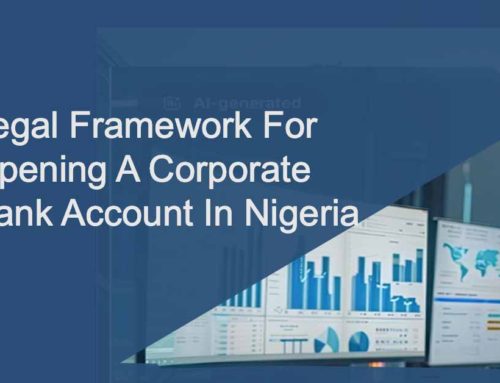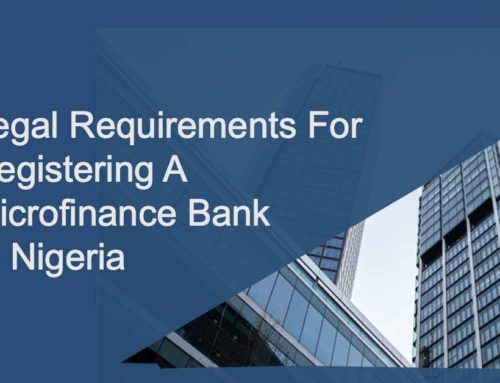A Bill Payment Company is a fintech business that allows users to pay for utilities and other bills through technology. While many financial institutions provide bill payment services as part of their offering, it is possible to establish a company that is not a financial institution to carry out the services.
In Nigeria, the Central Bank of Nigeria (CBN) regulates bill payment services and provides guidelines on who can participate in providing such services. This article outlines the legal requirements for establishing a bill payment company in Nigeria.
What is a Bill Payment Company?
Bill payment services can either be provided by a licensed Payment Service Provider (PSP) or by a company integrated with an existing PSP. Although different methods like cheques, cards, direct debits, and automated clearing house payments can be used, PSP companies today typically focus on electronic payment methods.
A PSP will usually develop a mobile app that facilitates electronic payments for bills, creating a seamless digital experience for users.
License Requirements for Bill Payment Companies
To operate a bill payment company, the entity must either be a CBN licensed PSP/financial institution or must enter into a partnership with an already licensed PSP. This process supports white-labelling, allowing a company without its own license to use the platform of a licensed PSP.
A bill payment company cannot legally operate without either a direct PSP license or a partnership with a licensed PSP. When partnering, both parties must execute a Service Level Agreement (SLA) that is periodically reviewed to ensure compliance with regulatory standards.
What is a Payment Service Provider?
A Payment Service Provider (PSP) is any licensed institution authorized to offer services involving payment interactions, settlement, clearing systems, or payment arrangements. Banks, mobile money operators, and other financial institutions can be classified as PSPs. These entities can interact directly with billers without intermediaries.
Eligibility to Set Up a Bill Payment Company in Nigeria
Individuals, groups, corporate entities, and foreign investors are eligible to set up a bill payment company. If the company does not aim to be licensed as a PSP, it may bypass some corporate governance regulations, such as those concerning share capital, escrow funds or director qualifications. However, if it seeks a PSP license, it must adhere to the applicable regulatory requirements.
Stakeholders in Bill Payment Services
- Payer: The customer making the payment.
- Biller: The service provider (e.g., electricity or telecom company) that the payer wishes to pay.
- Payer’s Bank: The bank that holds the payer’s account and debits it for the payment.
- Biller’s Bank: The bank that holds the biller’s account and credits it when the payment is made.
- Payment Service Provider (PSP): The institution licensed to carry out the bill payment process directly with the biller.
Limitations of an Unlicensed Bill Payment Company
- You will need to share commissions with the PSP.
- You cannot directly onboard the biller/merchant.
- You are bound by the SLA of the PSP, which could be terminated.
- You cannot commence operations without integrating with a PSP.
Operational Procedures for Licensed PSPs and Billers
A licensed PSP must execute an SLA with the biller, outlining their roles, obligations, minimum service delivery standards, and penalties for breaches. The SLA must be reviewed periodically to stay aligned with industry and regulatory changes.
Billers must confirm transaction completion to the payer, and PSPs must implement proper change management procedures, including maintenance schedules, emergency upgrades, and notification processes.
Conclusion
Establishing a bill payment company in Nigeria requires strict adherence to regulatory requirements, especially when dealing with electronic payments. While a company may choose to partner with a licensed Payment Service Provider, obtaining a direct license from the CBN offers more operational flexibility. Regardless of the model chosen, compliance with service level agreements, regulatory standards, and proper stakeholder management are key to operating successfully in the bill payment space.
Kindly reach out to us for any questions or information you may require on the subject of this article.




